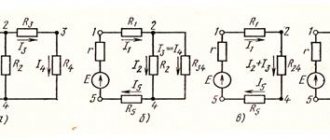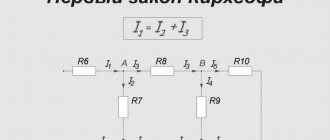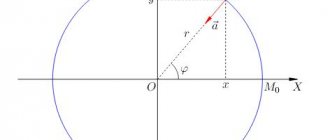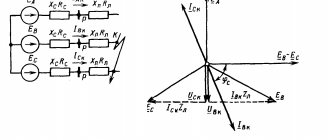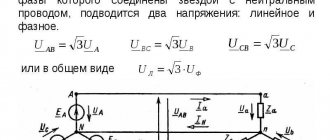Degree: Academic Bachelor Applied Bachelor
The most common entrance exams:
- Russian language
- Mathematics (major) - a specialized subject, at the choice of the university
- Physics - at the university's choice
- Computer science and information and communication technologies (ICT) - at the choice of the university
- Chemistry - at the choice of the university
- Foreign language - at the choice of the university
Electrical power engineering and electrical engineering together constitute a field of science and technology. It occupies a huge place in the world, since it is difficult to imagine the modern world without electrical energy.
It follows that the specialty 03/13/02 “Electrical power engineering and electrical engineering” is almost the most in demand in the labor market. Graduates of this profile can count on a wide choice of enterprises for further work.
This specialty has a wide range of profiles, such as power plants, electromechanics, power supply, electrical equipment, hydroelectric power stations and some others.
What does the employee do?
An electrical and electrical engineering specialist designs and maintains electrical networks. He commissions electrical power plants, regulates the load on heat generation systems and ensures safe operation of electrical equipment.
To work in the specialty, you need to know the basics of energy and energy supply, understand the principles of operation of high-voltage equipment, electrical machines and hydroelectric power plants.
You can obtain the relevant skills through professional retraining courses. Training is carried out remotely on the basis of existing higher or secondary vocational education.
Job responsibilities
A specialist in the field of “Electrical power and electrical engineering” assembles and sets up equipment, puts electrical installations into operation, carries out repair work, monitors voltage surges and distributes power flows to avoid network overload.
He calculates the cost of design and commissioning work at the facility, monitors the functionality of electrical equipment and maintains electrical networks in proper condition.
The specialist's main responsibilities include:
- Research of power supply systems
- Monitoring the functionality of electrical panel equipment
- Registration of defective statements
- Installation and dismantling of electrical wiring
- Maintenance and repair of engineering systems
- Calculation and justification of estimates
- Ordering electrical components and components
Career and salary
Jobs in the specialty can be found in design organizations, construction companies and housing and communal services. Electric power is also in demand at industrial enterprises, nuclear and hydroelectric power plants, and thermal power plants.
The salary of a beginning part-time specialist is 15,000 – 20,000 rubles per month. The average salary of an employee with 1 to 3 years of experience is 40,000 – 45,000 rubles per month.
Where to study?
At the International Academy of Expertise and Assessment, you can obtain a profession as a specialist in electrical power and electrical engineering in 3 months on the basis of higher or secondary vocational education:
- One of the most affordable prices in Russia
- Fully distance learning from the comfort of your home
- Diploma of professional retraining of the established form
- Certificate of compliance with professional standards worth 10,000 rubles. For a present!
- Valid license for educational activities
- More than 10,000 graduates from 85 constituent entities of the Russian Federation.
You can find out more details and apply for training here: https://elektroenergetika.maeo.rf
Admission conditions
Having graduated from the specialty “Electrical power and electrical engineering,” a young specialist must have universal skills and practical competencies in this field of science and technology, as well as be able to create and operate electrical devices and work with electrical energy flows.
What subjects does an applicant need to take to enter this specialty? The core here is mathematics. Additionally, the applicant must take:
- Russian language;
- physics, computer science and ICT or chemistry (at the applicant’s choice);
- at the discretion of the university - a foreign language.
Description of specialty
High environmental standards, ensuring the safety of drivers, passengers and pedestrians dictate strict requirements for vehicle components and systems.
Car of the XXI century – a complex of computer systems for controlling, collecting and processing information. The 21st century is the era of complete computerization and robotization of vehicles. The future of vehicle computer systems is automatic machines that control vehicle components and the vehicle as a whole without driver intervention.
Students receive theoretical and practical training in the following areas: microprocessor technology, programming, computer graphics systems, multimedia, artificial intelligence methods, technical vision, methods and algorithms for optimal control, technology for the production of electronic devices for automobiles, design of microprocessor control systems for automobiles, technical diagnostics of electronic systems cars, operation, repair and service of electronic and electrical equipment of cars.
Graduates can work in research and design organizations, automobile factories, factories that produce electronic and electrical equipment for cars, technical service centers, traffic police instrumental control posts, automotive technical examination posts, that is, wherever there is a car and a computer.
Graduates of this specialty can work:
- in electric grid enterprises of the city and region
- in industrial enterprises, in installation, design, research organizations
- in energy sales companies
Future profession
Electrical power and electrical engineering is a basic industry because it produces electrical energy. Here we can say that future graduates will be able to find themselves in various enterprises, organizations and industrial companies. A ready-made specialist will have the following skills and abilities:
- on receipt and distribution of electrical energy;
- for controlling the flow of electricity;
- on the creation and operation of electrical wiring systems;
- on working with electrical machines and converters.
Electrical power and electrical engineering: salary
On job sites, the profession of electric power and electrical engineering is most in demand in the capital and region - 20.9% of all advertisements.
In second place is St. Petersburg (9.2%). In third place is Irkutsk (5.2%). The average salary in Russia in May 2021 was 40,000 rubles. Minimum – 10,500 rubles. Maximum – 200,000.
Specialists working in Moscow and the region receive the most. The minimum salary in this region was 50,000 rubles, the maximum - 110,000 rubles.
In the Leningrad region. They offer salaries from 36,000 rubles. In Sverdlovsk – 27,000 rubles. In Novosibirsk - 25,000, 21,000 - in Nizhny Novgorod and Rostov.
Where to apply
Today, qualified training is carried out in the following priority universities in Moscow and Russia:
Moscow Aviation Institute (MAI);- National Research Technological University (MISiS);
- Moscow State Automobile and Highway Technical University;
- Moscow Agricultural Academy named after K.A. Timiryazev;
- National Research University (MPEI);
- Southwestern State University;
- Ryazan State Radio Engineering University;
- Saratov State Technical University named after Yu.A. Gagarin;
- Kaliningrad State Technical University.
Acquired skills and abilities
During the learning process, the student acquires the necessary professional skills and abilities:
- on working with electrical energy and flow control;
- on the creation and design of electrical machines and equipment;
- on the operation of means for constructing electrical systems;
- on the creation of electrical products;
- on development of electric power industry and electrical engineering;
- on the creation and design of electrical power and electrical systems;
- on formulating tasks in this area.
Specific example of a job position
An electrician for the repair and maintenance of electrical equipment is a profession that is included in the TOP 50 most popular specialties in Russia according to the Ministry of Labor. The work position of an electrician belongs to a particularly dangerous category associated with the risk of electrical injury. The profession requires certain knowledge in electrical engineering. An electrician must know methods of protection against electric shock and methods of providing first aid to people who have received electrical injuries.
Electrician at work
Every 5 years, representatives of this profession are required to undergo technical retraining. This is mainly due to the updating of electrical equipment and communications. According to the Unified Tariff and Qualification Guide, electricians for the repair and maintenance of electrical equipment and communications are assigned from the 2nd to the 8th categories. The higher the rank, the higher the employee’s salary and the more qualified his work.
A detailed description of job descriptions for electrician specialists can be found on the Internet. There you can also find out about Russian educational institutions for secondary and higher education in the field of power engineering and electrical engineering.
Job prospects by profession
A graduate of this specialty can apply for work in various fields of activity. These can be a variety of production and technological organizations that are engaged in the production, transmission and distribution of electricity.
Mostly graduates occupy positions as software engineers, electrical systems developers, electric drive engineers and others. Specialists in the fields of electric power, industry, mechanical engineering, and transport are in demand.
In Russia, there are quite large and promising organizations that always need specialists in electrical power engineering and electrical engineering. Here we can immediately talk about Gazprom LLC, Lenenergo OJSC or Roselektroprom Holding CJSC. These and other large enterprises have many partners, which suggests the need for specialists to work at these enterprises.
Earnings will range from 20-35 thousand hryvnia depending on the enterprise and position.
Requirements and professional skills
The head of an energy enterprise has at his disposal a staff of engineers, mid-level electricians and ordinary workers who graduated from vocational schools. Appointments to the positions of power engineers, electrical engineers and ordinary personnel are made by order of management upon the recommendation of the Chief Power Engineer of the enterprise.
Requirements for specialists are included in the job descriptions. They are graded depending on qualifications and the availability of professional skills. Requirements include:
- ability to work with documentation necessary to perform their duties;
- development of plans for the development of the energy potential of the enterprise;
- uninterrupted supply of electricity;
- knowledge of technical characteristics, design of energy networks and electrical installations;
- ability to repair elements of the energy complex;
- application of the latest techniques for adjustment and commissioning work carried out in various electrical equipment;
- introduction of best practices to improve the energy sector.
Advantages of Master's Degree Studies
Every bachelor's degree graduate has the opportunity to enroll in a master's program (“Electrical power engineering and electrical engineering” - 04/13/02). Continuing education always involves an in-depth program that allows you to expand your range of perspectives.
In the master's program, the student undergoes training in the management of electrical power systems, as well as their maintenance and improvement. Here he will study the design and research of electric drives.
Masters in this specialty are in demand abroad, not to mention Russia. They may be needed both as teachers and researchers. Enterprises will primarily hire highly qualified specialists who have completed a master's degree.
Electricity supply as part of the electric power industry
The power supply system is designed to transfer electricity from sources to consumers. This is a very important part of the electric power industry; the operation of industrial and agricultural enterprises, the provision of electricity, heat, water to the population, and the maintenance of life in general depend on it.
Electrical supply is a specialty in demand mainly in industry. Deep theoretical training is required. The scope of application of knowledge covers all stages of generation, transmission, organization of distribution to consumers and proper use of consumed energy. Knowledge in the field of electrical machines and devices, power supply, lighting and the study of electricity consumers is required. The training includes the entire range of disciplines in the field of electrical power engineering, thermal power engineering, energy economics, and enterprise management.
Professions after graduation:
- distribution network electrician;
- energy drink;
- electrical equipment specialist;
- design engineer for electrical supply and electromechanics.
